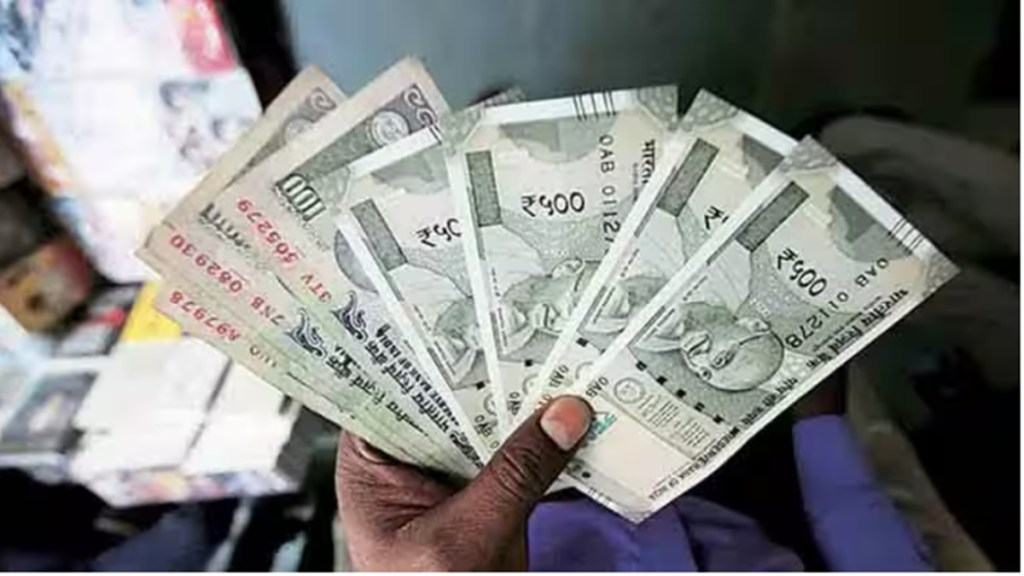Around 60-70% of the individual taxpayers have likely shifted to the exemption-less personal income tax (PIT) regime, Central Board of Direct Taxes (CBDT) chairman Nitin Gupta said on Tuesday, indicating that the steps announced in the Budget FY24 including making it the “default regime” has worked.
As such, post-refunds PIT receipts jumped 32.5% on year by October 9 in the current fiscal year against the budgeted growth of 11.4% for the whole year, Gupta said.
Though the exemption-less PIT regime was introduced in FY20 Budget, it hadn’t found traction among the taxpayers, till the current year’s Budget made it more attractive with a host of tweaks.
The Budget FY24 raised the rebate limit in the new tax regime to ₹ 7 lakh, meaning that persons with annual income upto that level will not have to pay any tax. The tax structure was changed by reducing number of slabs to five and increasing the exemption limit to Rs 3 lakh, and the benefit of standard deduction was extended to the salaried class and the pensioners including family pensioners.
Moreover. the highest surcharge rate was also reduced from 37% to 25% in the new tax regime for income above Rs 2 crore.
Sudhir Kapadia, partner-tax and regulatory services, EY said: “Earlier when (the exemption-less regime) was introduced in FY20, the deductions were still available, and the slab rates without the deductions were not attractive. So, in the FY20 scheme, low income earners benefited but majority of middle-income and high-income earners did not. The 30% threshold now kicks in 15 lakh per annum income, while earlier the level was Rs 10 lakh per annum.”
Meanwhile, the Centre’s direct tax collections (net of refunds), stood at Rs 9.57 trillion till October 9 in the current fiscal year, up 21.8% on year, as against the budgeted growth of 11.6% for the whole year.
This not only brightened the prospect of the tax collections exceeding the Budget Estimate (BE) by a significant margin, but may allow fiscal correction sharper than estimated in the Budget in FY24, especially since nominal GDP growth could be higher than 10.5% estimated in the Budget.
The sharper-than-budgeted rise in direct tax mop-up is mainly due to the jump in personal income tax collections, while corporate tax receipts too held up with growth of 12.4% till date.
“Based on the latest data, it seems the gross (prior to mandatory transfers to states) direct tax collections will cross the Budget estimate this year,” the CBDT chairman said.
The Budget has pegged gross direct tax mop-up at Rs 18.23 trillion for FY24, the collections so far have been 52.5% of that.
The growth in PIT collections, including securities transaction tax (STT) , stood at 31.9% year-on-year during the period.
The Centre’s direct tax collections before refunds stood at Rs 11.07 trillion, 18% higher on year, as per the CBDT data.
The CBDT Chairman also said that the Centre has collected Rs 600 crore from the online gaming companies as Tax deducted at source (TDS) and Rs 105 crore from the cryptocurrencies in the first six months of FY24.
As per the new regime for corporates, the newly inserted section 115BAA (in 2019) in the Income Tax Act states that domestic companies have the option to pay tax at a rate of 22%, plus surcharge of 10% and cess of 4%, which brings the effective tax rate to 25.17%. If they opt for this regime, the companies may not pay the minimum alternative tax.
The CBDT Chairman said that around 3.5 million cases for issuance of refunds are held up with the income tax department, due to the mismatch of the taxpayer’s bank accounts. He said the department is in touch with such taxpayers to resolve the matter expeditiously and process the refund.
“We have started a unique demand management facilitation system about a year back for all such cases where refunds are held up due to a variety of reasons. An email is triggered to the taxpayer saying they will get a call three days from the dispatch of the email from a particular number and following this conversation, the issues are being resolved,” Gupta told reporters.
A total of 72.7 million income tax returns (ITR) were filed till July 31 in the assessment year 2023-24, of which 71.5 million were verified by taxpayers, and the income tax department has processed 6.80 crore returns from these, according to the official data.

